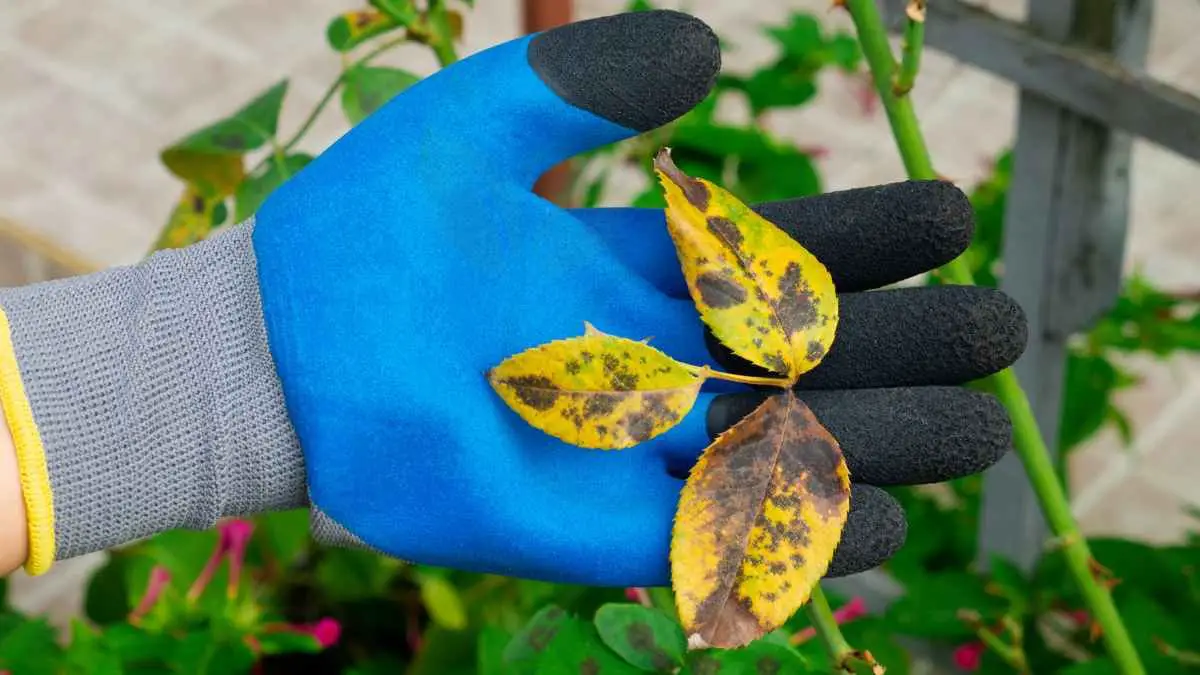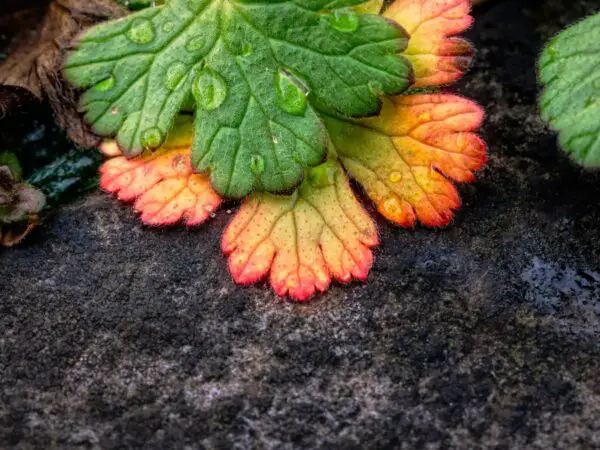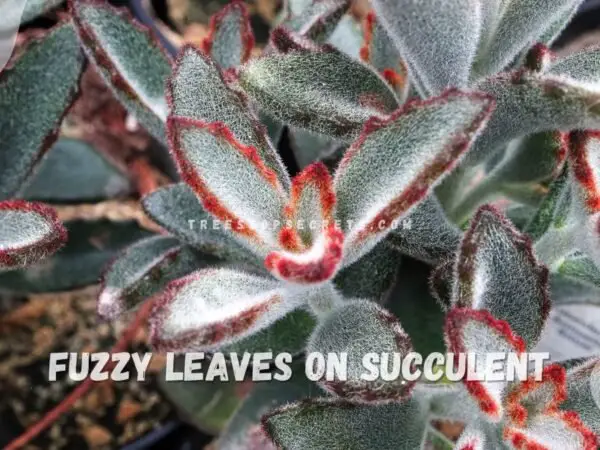
Are your rose leaves turning yellow? Don't worry, you're not alone. This common issue, such as root rot, can be caused by several factors, including roots and weed, but with the right care, your roses' foliage can thrive again.
Yellowing rose leaves can indicate various problems such as nutrient deficiencies, pests, diseases, root rot, or overwatering. To identify the cause, check for signs of pests like aphids or mites, examine the soil moisture levels, and ensure proper sunlight and airflow. Adjust watering and fertilizing schedules accordingly. Consider using organic remedies or consulting a garden expert for tailored advice on rose plants, weeds, roots, or foliage.
If your rose leaves are turning yellow, it's essential to take action promptly to prevent further damage and promote healthy growth. By understanding the underlying causes and implementing targeted solutions, you can restore your roses' vibrancy and beauty.
Key Takeaways
- Identify the Causes: Determine the reasons behind yellow leaves on your rose bush by considering factors like watering, sunlight exposure, fertilization, pests, diseases, stress, and mulching.
- Adjust Watering Techniques to prevent yellowing leaves, as excessive water can cause this issue. Monitor soil moisture levels and adjust watering frequency accordingly.
- Optimize Sunlight and Shade: Place your rose bush in a location that provides the right balance of sunlight and shade. Too much or too little sunlight can cause leaf discoloration.
- Implement Effective Pest Control: Regularly inspect your rose bush for pests and apply appropriate control strategies to prevent yellowing caused by insect infestations.
- Manage Diseases Proactively: Monitor your rose bush for signs of diseases and promptly treat any infections to prevent yellow leaves and maintain plant health.
- Reduce Stress Factors: Minimize stress on your rose bush by avoiding over-fertilization, extreme temperature fluctuations, and physical damage, which can contribute to leaf discoloration.
Identifying Causes
Chlorosis
Yellowing leaves on a rose bush may indicate chlorosis caused by high soil pH or iron deficiency. Adjust watering habits to combat this issue. Improve drainage and consider conducting a soil test to address nutrient imbalances effectively.
Underwatering
To prevent yellowing of rose leaves due to underwatering, check soil moisture regularly. Implement drip irrigation for deep and thorough watering sessions. Avoid underwatering by observing signs such as wilting leaves, which signal the need for more water.
Overwatering
Recognize the symptoms of overwatering that lead to yellow leaves on your rose bush. Improve oxygen levels in the soil by reducing watering frequency. Ensure proper drainage to prevent waterlogged conditions, which can cause root rot and yellowing foliage.
Heat Stress
Prevent yellowing and leaf drop caused by heat stress by taking proactive measures. Replace dark mulch with light-colored options to reduce heat absorption around the rose bushes. Shield the plants from direct sunlight during peak heat hours to minimize stress on the foliage.
Nutrient Deficiencies
Address yellow leaves resulting from nutrient deficiencies through strategic actions. Conduct soil tests to identify lacking nutrients accurately. Consider adjusting fertilizer application based on the test results to provide the necessary nutrients for healthy leaf growth.
Watering Techniques
Proper Watering
To maintain healthy rose leaves, learn the correct watering techniques. Water roses twice a week in most regions during summer. Wait for slight drooping of plants before watering again.
Avoiding Overwatering
Prevent yellow leaves by avoiding overwatering. Adjust watering frequency based on soil moisture levels. Ensure proper drainage to prevent water accumulation around roots.
Signs of Underwatering
Recognize signs like wilting leaves as indicators of underwatering. Check soil moisture levels to confirm lack of water. Implement appropriate watering methods to address the issue.
Sunlight and Shade
Adequate Sunlight
Rose bushes require adequate sunlight to thrive and maintain their health. Lack of sunlight can lead to yellowing of leaves, indicating a problem. It's essential to ensure that rose bushes receive at least 6 hours of sunlight daily for optimal growth. Keep a close eye on any signs of yellowing, as it could be a result of insufficient exposure to sunlight.
Shade Benefits
Understanding the impact of natural shading on rose bushes is crucial for their well-being. When rose bushes experience natural shading effects, it's important to allow them some time to recover. Avoid placing rose bushes in areas with dense foliage, as this can contribute to issues like yellowing and leaf fall.
Fertilization Tips
Importance of Fertilizing
Proper fertilization is crucial for rose bushes to thrive and produce vibrant blooms. Following product directions ensures the right balance of nutrients. Conducting soil tests helps determine the specific fertilizer needs of the rose bush.
Over-Feeding Risks
Avoid overfeeding rose bushes as it can lead to yellow leaves, indicating nutrient imbalances. Stick to recommended application rates to prevent issues like nutrient overload. Keep an eye out for signs such as leaf discoloration, signaling excessive fertilization.
Under-Feeding Risks
Underfeeding rose bushes poses risks such as stunted growth and poor flowering. Soil tests are essential in identifying any nutrient deficiencies that need addressing. Adjusting the fertilizer application based on the plant's requirements is key to promoting healthy growth.
Pest Control Strategies
Common Pests
Spider Mites
Spider mites are potential causes of yellowing leaves on rose bushes. To control spider mite infestations, use a mild soap spray. Monitor the underside of leaves for spider mite presence.
Black Spot Disease
Black spot disease is a common culprit behind yellow leaves on rose bushes. Promptly remove affected leaves to prevent disease spread. Apply fungicides to manage and prevent black spot disease.
Soap Spray Usage
Utilize mild soap spray for pest control on rose bushes. Follow proper application techniques to effectively manage pests. Monitor for pest activity and treat as necessary.
Disease Management
Managing Diseases
To manage diseases causing yellow leaves on a rose bush, implement effective strategies. Utilize fungicides to prevent disease spread and maintain overall plant health. Remove infected plant parts promptly to reduce the severity of the disease.
Implementing these strategies can significantly reduce the impact of diseases on your rose bushes. By proactively managing diseases, you can preserve the health and beauty of your plants.
Stress Management
Dealing with Heat Stress
Roses are sensitive to heat stress, leading to yellow leaves on a rose bush. To combat this issue, protect rose bushes from heat stress by providing shade during peak hours. Adequate watering is crucial to help plants cope with high temperatures.
Take measures such as mulching around the base of the rose bush to retain moisture and regulate soil temperature. Consider using a soaker hose to ensure deep watering and prevent surface evaporation. Monitoring the plant's response to these methods can guide further adjustments for optimal care.
- Mulch helps in retaining moisture
- Soaker hoses ensure deep watering
- Monitor plant response for necessary adjustments
Mulching Techniques
Proper Mulching
Apply mulch correctly to support rose bush health. Light-colored mulch helps reflect heat and reduce stress on the plants. Avoid piling mulch against plant stems to prevent rot and disease.
Mulching plays a crucial role in maintaining the health and vitality of your rose bushes. By applying a suitable layer of compost around the base of the plants, you can provide essential nutrients, retain moisture, and suppress weed growth. Light-colored mulch is preferred as it reflects sunlight, keeping the roots cool during hot weather. This helps reduce stress on the plants, promoting healthy growth and blooming. Proper mulching prevents issues like rot and diseases by ensuring that moisture does not accumulate around the plant stems.
When it comes to mulching your rose bushes, remember these key points:
- Light-colored mulch benefits by reflecting heat.
- Proper application supports plant health.
- Avoid piling mulch against plant stems to prevent rot and disease.
Preventive Measures
Monitoring for Pests
Regularly check for pests like rose leafhoppers on rose bushes. Use insect pest control products to manage infestations effectively. Vigilantly monitor pests to prevent damage to plant health.
Ensuring Nutrients
Maintain proper nutrient levels to prevent yellow leaves. Conduct soil tests to identify nutrient deficiencies accurately. Adjust fertilizer application according to soil nutrient analysis results.
Optimal Growth Conditions
Create optimal conditions for rose bush growth and health by ensuring adequate sunlight, water, and nutrients. Monitor stress factors closely and address them promptly for optimal growth.
Summary
In tackling yellow leaves on your rose bush, you've learned to identify causes, adjust watering techniques, optimize sunlight exposure, fertilize strategically, control pests, manage diseases, reduce stress, apply mulching properly, and take preventive measures. By following these steps diligently, you can ensure the health and vibrancy of your rose bush. Remember that consistency is key in maintaining a flourishing garden. Implement these practices regularly to enjoy a beautiful and thriving rose bush all year round.
Take charge of your gardening journey today by applying these expert tips to address yellow leaves on your rose bush. Your commitment to nurturing your plants will be rewarded with a stunning display of colorful blooms and lush greenery. Keep up the good work, and watch your garden flourish!
Frequently Asked Questions
What are the common causes of yellow leaves on a rose bush?
Yellow leaves on a rose bush can be caused by overwatering, lack of sunlight, nutrient deficiencies, pests, diseases, or stress factors. Identifying the specific cause is crucial for effective treatment.
How can I improve watering techniques for my rose bush?
Water your rose bush deeply but infrequently to encourage deep root growth. Ensure proper drainage to prevent waterlogging. Water in the morning to allow foliage to dry during the day and reduce the risk of fungal diseases.
What sunlight and shade conditions are ideal for a healthy rose bush?
Rose bushes thrive in full sun, requiring at least 6 hours of direct sunlight daily. Ensure adequate air circulation around the plant to prevent fungal issues. In hotter climates, some afternoon shade may benefit the plant.
What fertilization tips should I follow for my rose bush?
Use a balanced fertilizer specifically formulated for roses. Apply fertilizer in early spring when new growth appears and again after the first bloom cycle. Avoid over-fertilizing, as this can lead to excessive foliage growth at the expense of flowers.
How can I effectively control pests affecting my rose bush?
Regularly inspect your rose bush for common pests like aphids, spider mites, or thrips. Use organic insecticidal soaps or neem oil to treat infestations. Introduce beneficial insects like ladybugs to naturally control pest populations.
What measures should I take for disease management in my rose bush?
Practice good sanitation by removing and disposing of any infected leaves or debris promptly. Choose disease-resistant rose varieties when planting. Apply fungicides preventively if necessary, following label instructions carefully.
How can I manage stress factors affecting my rose bush?
Minimize stress by avoiding planting in areas with strong winds or extreme temperatures. Provide consistent care with proper watering and fertilization practices. Prune your rose bush regularly to maintain good airflow and shape.
Are mulching techniques important for maintaining a healthy rose bush?
Mulching helps retain soil moisture, suppresses weeds, and regulates soil temperature around the roots of your rose bush. Use organic mulch like shredded bark or compost and apply a layer around the base of the plant while keeping it away from direct contact with stems.
Remember that each step you take towards caring for your rose bushes contributes significantly to their overall health and vitality.
Image Source: Paid image from CANVA





